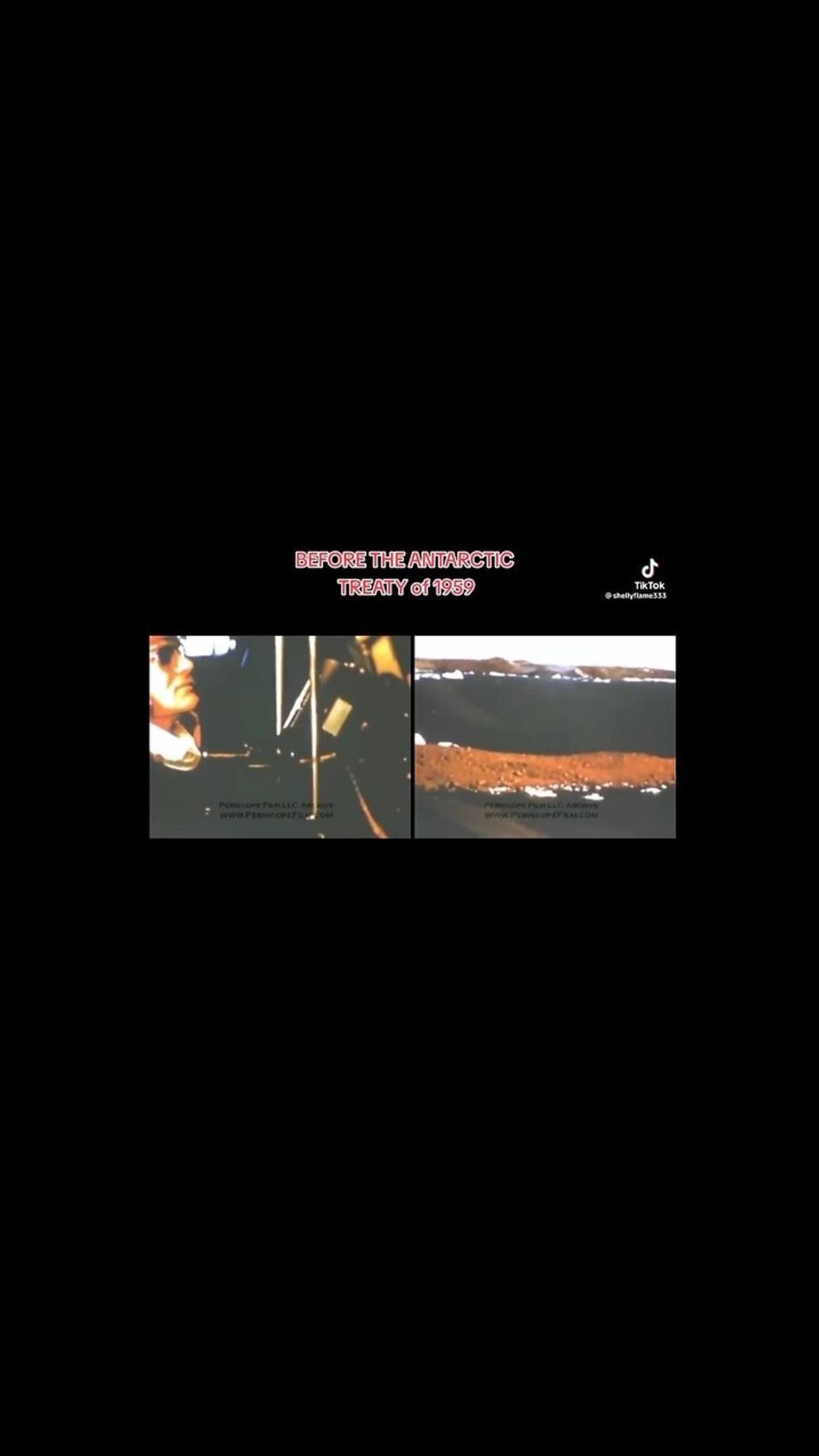BEFORE 1959 ANTARCTICA TREATY: "300 Sq Miles of Land Without Snow" - Lt Cdr Bunger Discovery

BEFORE 1959 ANTARCTICA TREATY: "300 Sq Miles of Land Without Snow" - Lt Cdr Bunger Discovery
1947: Unfortunately, no flights were possible between January 13 and the 21st because of the huge northerly swell.
On January 22 the swells at last moderated and the weather remained acceptable for additional flights.
Over the next week, long and successful photomapping missions progressed to the west.
Suddenly, on either January 30 or February 1 (the record is unclear), PBM pilot Lieutenant Commander David E.
Bunger lifted from the bay and headed south for the continent some hundred miles distant.
At this time the USS CURRITUCK was off the Shackleton Ice Shelf on the Queen Mary Coast of Wilkes Land.
Reaching the coastline, Bunger flew west with cameras humming.
Suddenly the men in the cockpit saw a dark spot come up over the barren white horizon and as they drew closer, they couldn't believe their eyes.
Byrd later described it as a "land of blue and green lakes and brown hills in an otherwise limitless expanse of ice".
Bunger and his men carefully inspected the region and then raced back to the ship to tell the others of their discovery.
Several days later Bunger and his flight crew returned for another look, finding one of the lakes big enough to land on.
Bunger carefully landed the "flying boat" and slowly came to a stop.
The water was actually quite warm for Antarctica, about 30°, as the men dipped their hands in to the elbow.
The lake was filled with red, blue and green algae which gave the lakes their distinctive color.
The fly boys "seemed to have dropped out of the twentieth century into a landscape of thousands of years ago when land was just starting to emerge from one of the great ice ages", Byrd later wrote.
Byrd called the discovery "by far the most important, so far as the public interest was concerned of the expedition".
